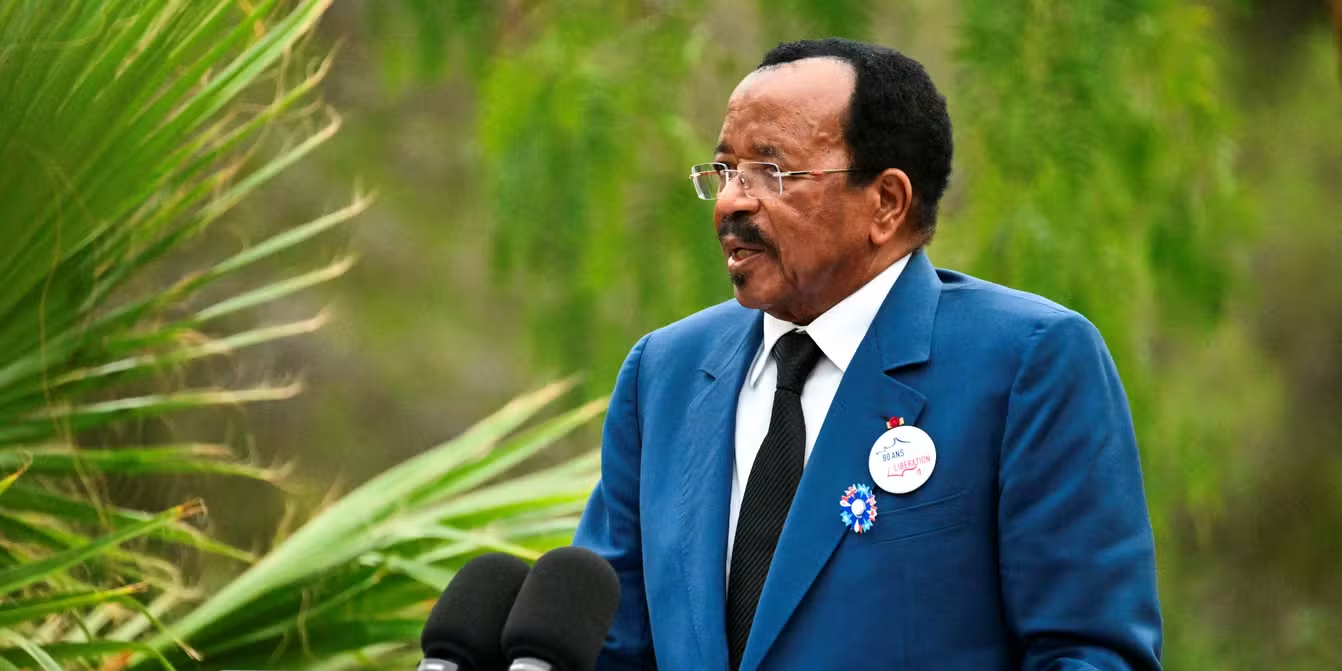
Cameroon’s political landscape is facing renewed uncertainty as President Paul Biya, 92, remains largely absent from the public eye ahead of the October 2025 presidential election.
Biya will not attend the commemorations in Beijing marking the 80th anniversary of China’s victory in World War II, despite receiving an official invitation from Chinese President Xi Jinping.
Observers say his absence reinforces concerns over his health, widely perceived as increasingly fragile.
While officially a candidate in the upcoming election, Biya’s public inactivity has fueled speculation about the viability of his campaign.
“His inability to travel and the multiple postponements of diplomatic meetings, such as the one with former French ambassador Thierry Marchand, confirm the head of state’s difficulty in honoring his commitments,” analysts note.
Political commentators have questioned whether Biya is running an active campaign or functioning as a “facade candidate,” with the state apparatus maintaining the appearance of activity while the president himself remains largely invisible.
The prolonged absences and lack of transparency regarding his physical condition have made the issue of succession central to national and international discourse.
The situation has sparked concern both domestically and abroad, as Cameroonians watch closely for signs of continuity or potential leadership alternatives. With Biya being the world’s oldest sitting head of state, the prospect of a successor has intensified debates over political stability and governance.
The political vacuum created by Biya’s absence has led to a climate of uncertainty, with citizens and diplomats alike weighing the implications for Cameroon’s future.
Analysts argue that the coming months will be pivotal in determining whether the nation can transition smoothly or if prolonged ambiguity will dominate the pre-election period.
As Cameroon approaches a potentially historic electoral moment, the health and visibility of its longstanding leader remain at the forefront of national and international attention, shaping discussions about continuity, leadership, and the country’s democratic trajectory.



